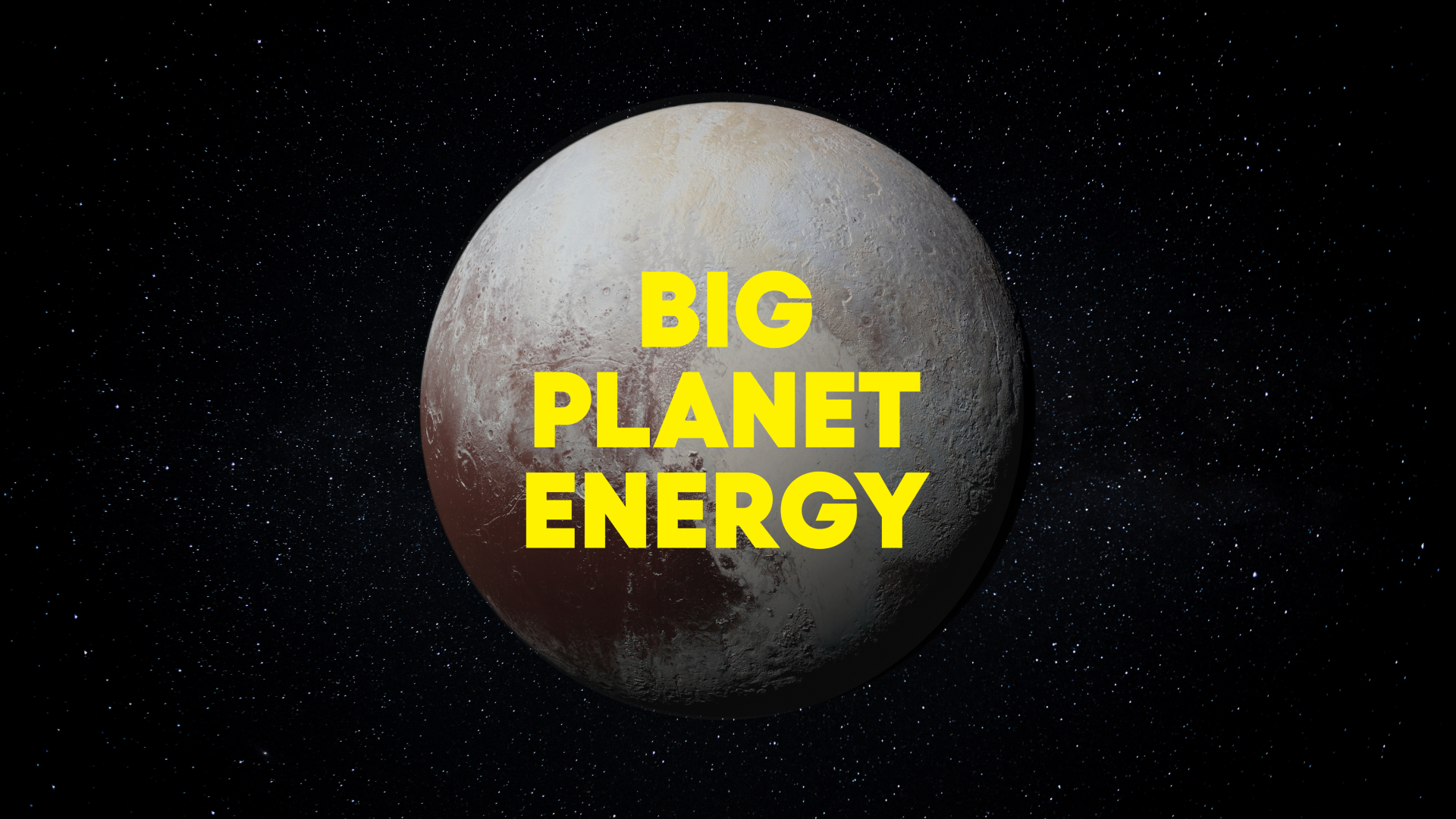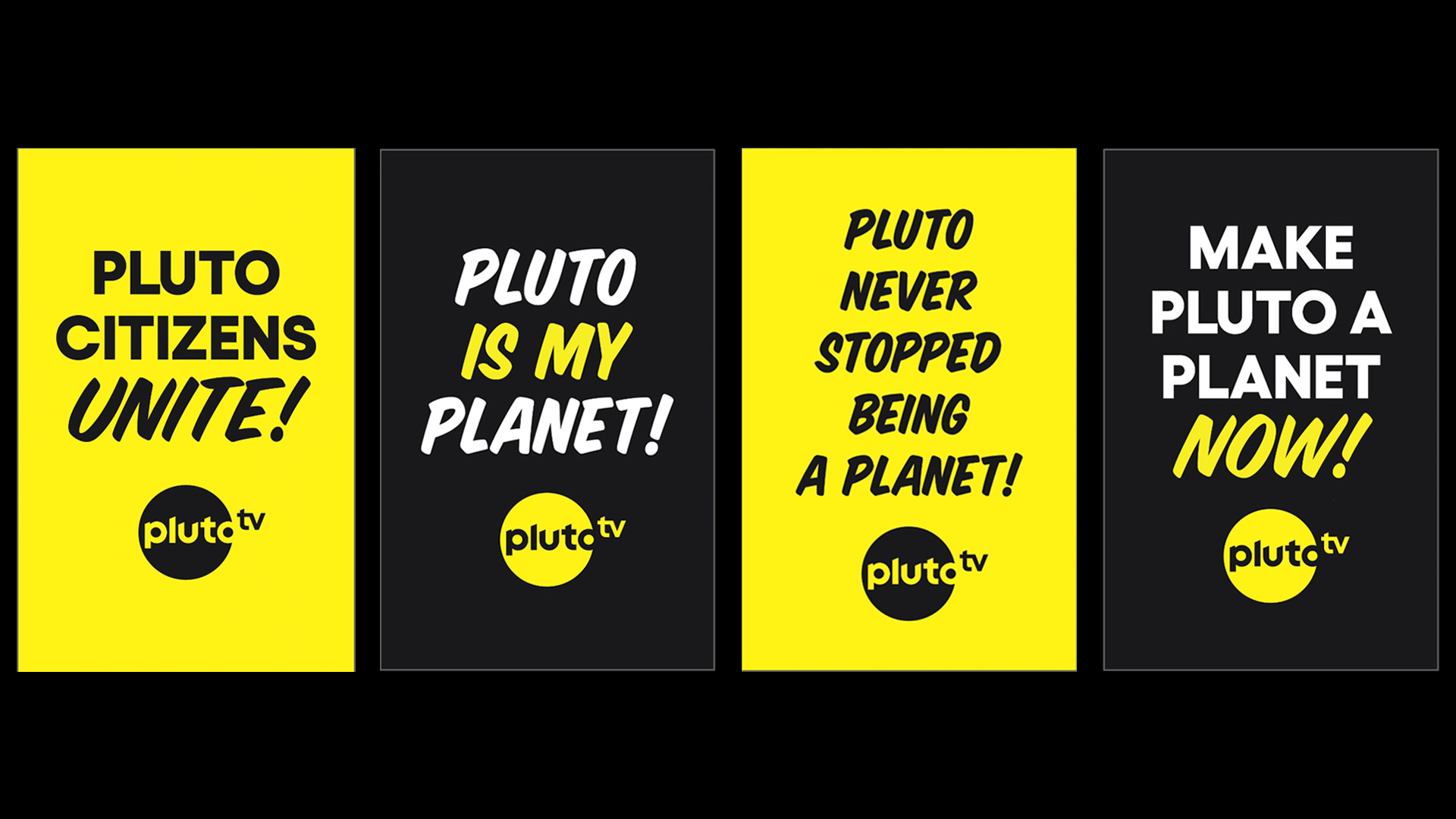Pluto TV will rally to make Pluto a planet again on April 1 (it's no joke)
Pluto TV will celebrate to 10 years of free TV streaming by going back to its Pluto planet roots.

Pluto may have lost its status as a full-fledged planet in 2006, but that doesn't mean it's a joke of a world this April Fools' Day and the folks behind Pluto TV want to make that clear.
On April 1, the free Pluto TV streaming service will host a "sit-in" to revisit the Pluto planethood debate while also celebrating the 10th anniversary of the live TV streaming service. The event, dubbed "Pluto TV's Rally for Pluto! Make Pluto A Planet!," runs from 11:30 a.m. to 1 p.m. Pacific Time at the University of California Los Angeles' Bruin Plaza.
You can follow along live online via Pluto TV's Instagram, X (formerly Twitter), Facebook, Threads and TikTok channels. And if you can't make it in person, you can sign a Change.org petition for Pluto's planethood to make your voice heard.
Related: Why is Pluto not a planet?
"Join the citizens of Pluto for a rally to spark the conversation around Pluto's planetary status," Pluto TV said in a statement. "It's been 18 years since Pluto was demoted and we think it's time for Pluto to have a vote in its own destiny. "
Pluto TV has enlisted Pluto pioneer Alan Stern, principal investigator for NASA's New Horizons mission (which made the first Pluto flyby in 2015) to speak on Pluto's behalf. Space.com has confirmed with Stern that's it's no April Fools prank. He actually will speak at the event.

A video message from astrophysicist Neil DeGrasse Tyson, director of the Hayden Planetarium at the American Museum of Natural History in New York City, who supported Pluto's demotion, is also expected to be played at the rally during the debate. Tyson recently launched his StarTalk TV streaming channel on Pluto TV.
Get the Space.com Newsletter
Breaking space news, the latest updates on rocket launches, skywatching events and more!
Related: What is a planet?
Pluto is currently classified as a dwarf planet after losing its planethood status in 2006 during a vote by astronomers with the International Astronomical Union. The vote came amid a larger debate over what makes a planet, and if being round with moons (like Pluto is - it has five moons) is enough to qualify. Ultimately, scientists opted to demote Pluto to a dwarf planet rather than raise other dwarf planets in our solar system (like Ceres, the largest asteroid in the asteroid belt) up to planetary status.
Since then, Pluto supporters and naysayers have been vocal about the decision, but that hasn't stopped true Pluto planet lovers from continuing their fight for its status.
Pluto TV's Pluto rally aims to both celebrate the streaming service's 10th birthday while supporting what it calls a planetary underdog.
"The sit-in will feature high-profile guest speakers, fun chants, snacks and more all in the name of scientific fun!" Pluto TV event organizers wrote. "If you’re a believer in Pluto’s right to planet-hood, sign the petition online to show your support."
Join our Space Forums to keep talking space on the latest missions, night sky and more! And if you have a news tip, correction or comment, let us know at: community@space.com.

Tariq is the Editor-in-Chief of Space.com and joined the team in 2001, first as an intern and staff writer, and later as an editor. He covers human spaceflight, exploration and space science, as well as skywatching and entertainment. He became Space.com's Managing Editor in 2009 and Editor-in-Chief in 2019. Before joining Space.com, Tariq was a staff reporter for The Los Angeles Times covering education and city beats in La Habra, Fullerton and Huntington Beach. In October 2022, Tariq received the Harry Kolcum Award for excellence in space reporting from the National Space Club Florida Committee. He is also an Eagle Scout (yes, he has the Space Exploration merit badge) and went to Space Camp four times as a kid and a fifth time as an adult. He has journalism degrees from the University of Southern California and New York University. You can find Tariq at Space.com and as the co-host to the This Week In Space podcast with space historian Rod Pyle on the TWiT network. To see his latest project, you can follow Tariq on Twitter @tariqjmalik.
-
Dave There is no question that Pluto is a planet, at the same time there are ways in which it does not behave like a planet. Perhaps we need to change the definition of what a planet is. It is certainly not a dwarf planet. One thing is certain it is the planet with a heart.Reply -
Pogo And the current generation forgets that Ceres and a few other bodies discovered in the early 19th century were considered planets until they realized that there were many in the same vicinity between Mars and Jupiter. Should Ceres also be considered a planet? What about those objects discovered in recent years that are also near Pluto-size and bigger? Pluto was thought to be much bigger until it was discovered to be Pluto-Charon with a few small moons in 1998. I have a general astronomy text from 1948 that gives a Pluto diameter of about 6000 miles. Be careful what we wish for.Reply
